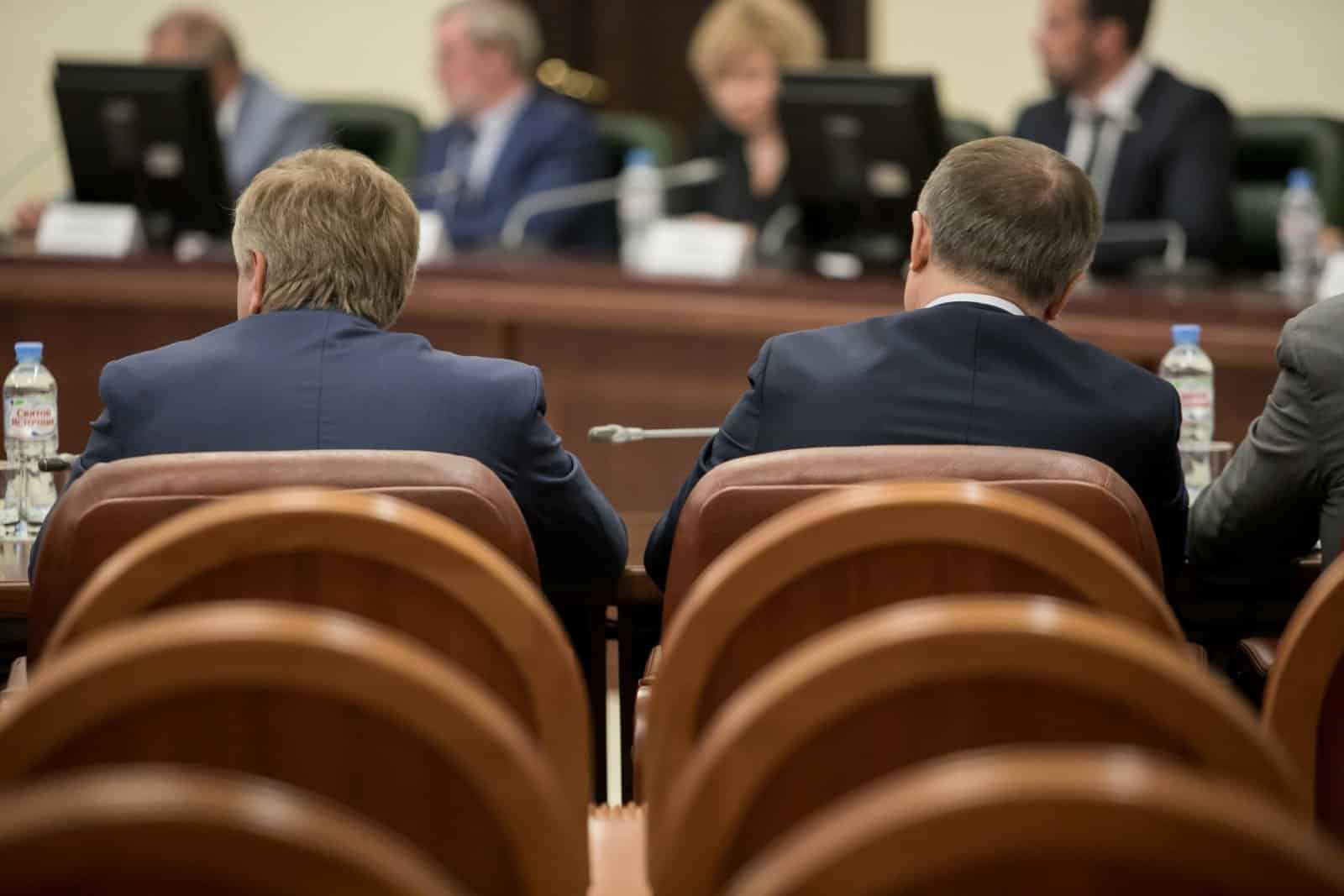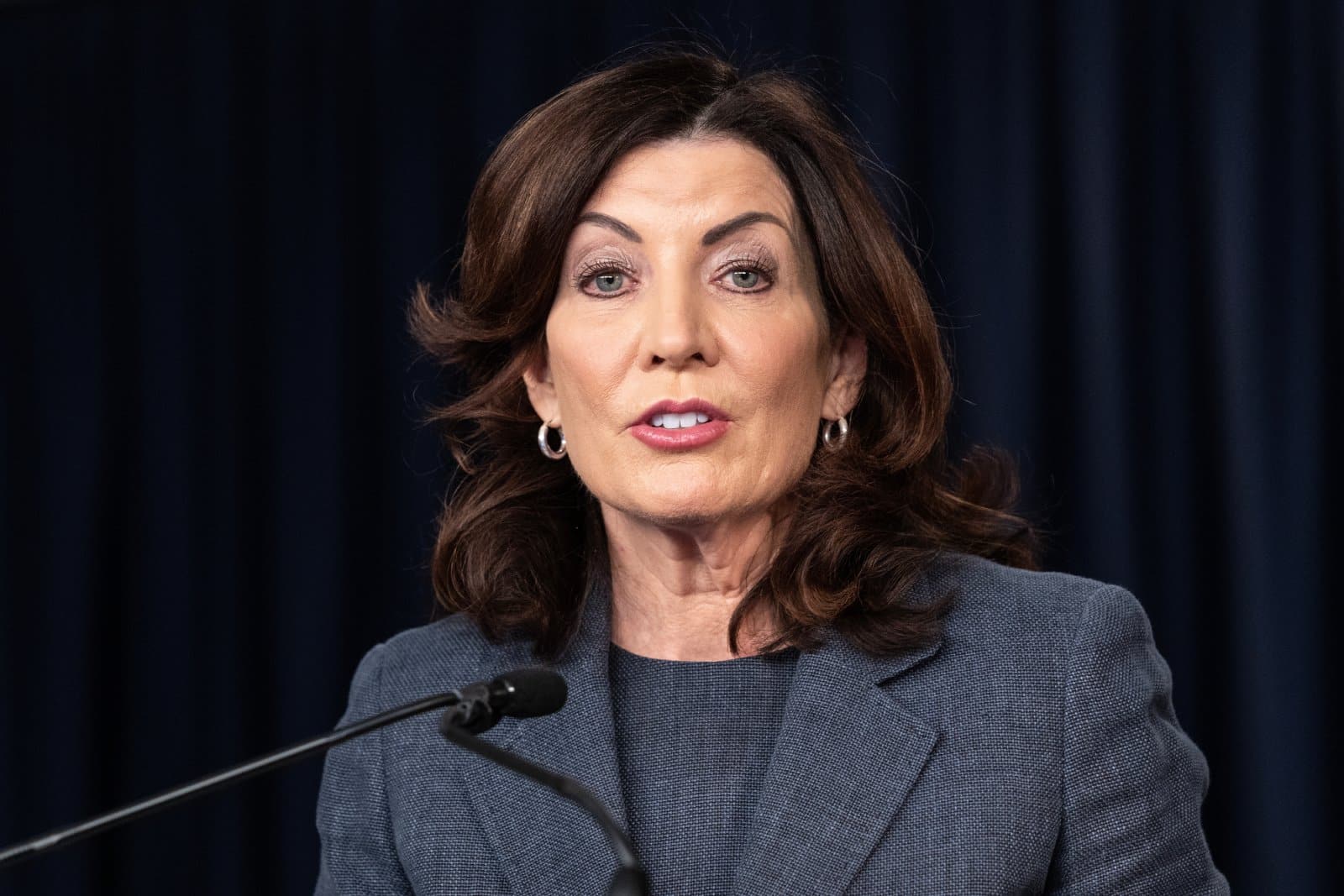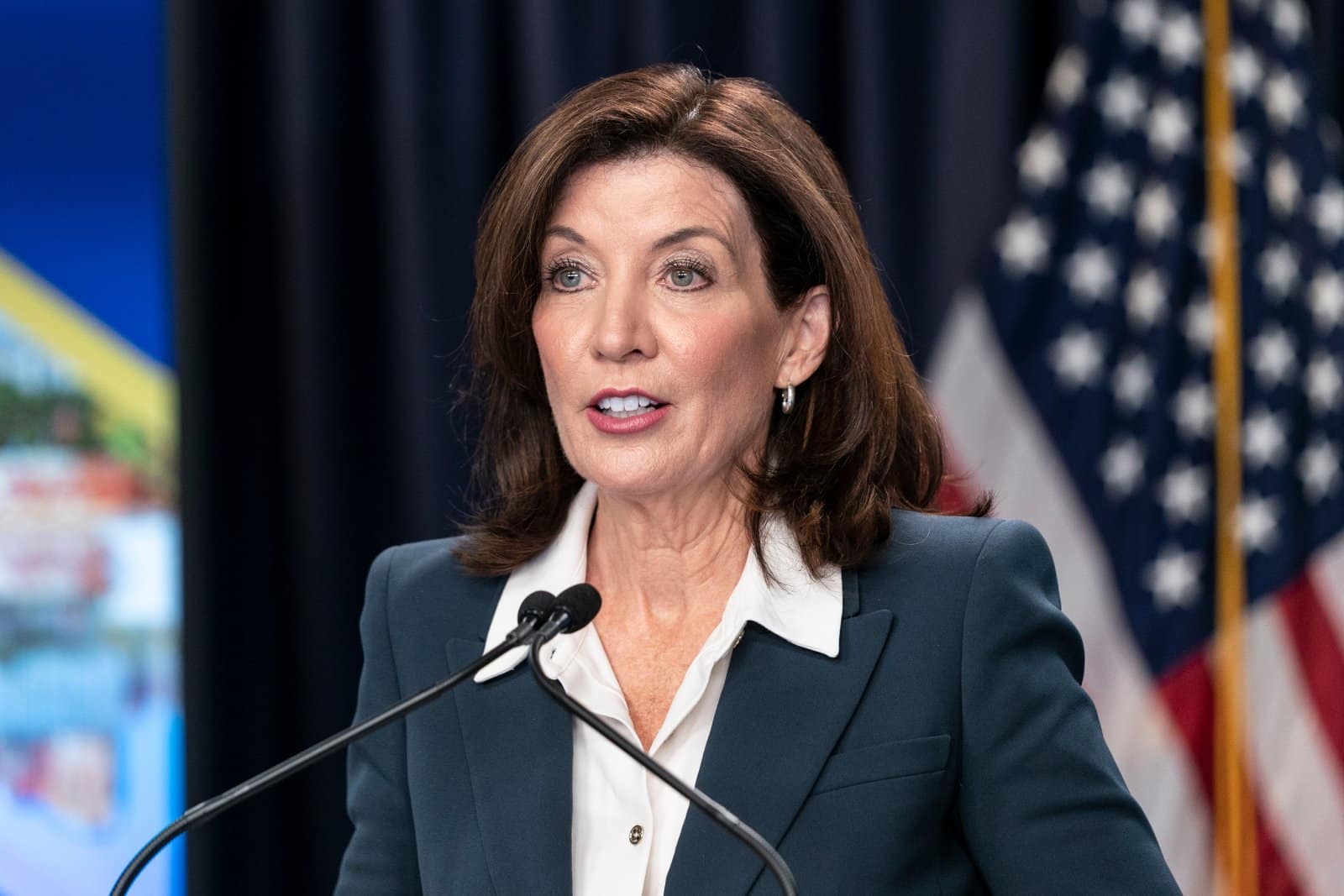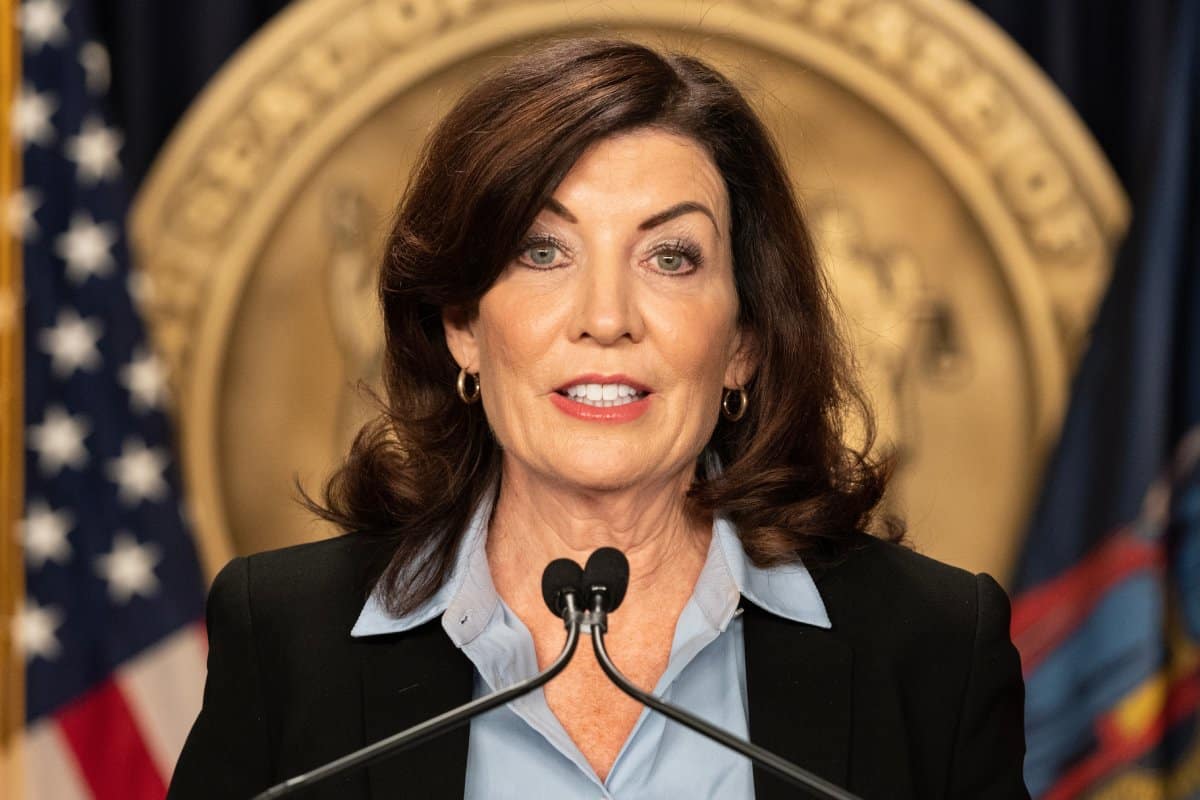New York is facing a crisis that could affect everyone that lives in the city. Here are the details.
MTA’s Financial Crisis Looms

New York’s Metropolitan Transportation Authority (MTA) could be on the brink of ruin. A $16.5 billion budget shortfall has left the city’s public transit system in chaos, and New Yorkers in limbo.
Congestion Pricing Plan Derailed

This comes after Governor Kathy Hochul hit the brakes on the congestion pricing plan, which was expected to start on June 30th.
The Proposed Scheme

The congestion pricing plan would have charged drivers around $15 to enter Manhattan’s busiest areas. The goal was to reduce traffic and raise funds for the MTA, and officials were expecting a massive windfall from the new tolls.
Governor’s Last-Minute Decision

But Governor Hochul pulled the plug at the last minute, worried that it could hurt the local economy.
Immediate Fallout from the Decision

The fallout from this decision has been called “catastrophic” by some MTA officials and “dire” by others. With the plan on hold, the MTA is scrambling to cover the funding gap.
Massive Budget Cuts on the Horizon

They’ve got to slash their capital budget by at least 30%, which means some big cuts on projects that would have massively helped New Yorkers:
Subway Expansion Plans Scrapped

Subway Expansion: $5 billion earmarked for a new subway line is now off the table.
Service Improvements Put on Hold

Service Improvements: $7.5 billion intended for train upgrades, track improvements, and maintenance is getting slashed.
No More Accessibility Money

Accessibility Projects: $2 billion planned to make more stations wheelchair-accessible is being cut.
Environmental Initiatives Stalled

Zero-Emission Buses: A $500 million plan to buy eco-friendly buses is on hold. This blow has left many questioning the city’s commitment to combating pollution and improving public health.
MTA Board’s Frustration

MTA board member Midori Valdivia summed up the mood: “No board member wants to sit here talking about what projects we want to cut. It feels really tragic that we might not be able to deliver to our environmental justice communities as much as we had promised.”
Governor’s Promise and Public Skepticism

Governor Hochul has promised to find new ways to fill the funding gap. She said, “While the timing of the next budget may necessitate temporary adjustments to the timeline of certain contracts, there is no reason for New Yorkers to be concerned that any planned projects will not be delivered.” New Yorkers, however, remain unconvinced.
Searching for Alternative Solutions

Hochul is also looking for ways to use the MTA’s current plans to increase revenues and savings but is yet to iron out any details.
Potential Financial Penalties

The MTA’s financial issues could get worse if funding doesn’t come through soon. They’ve already sunk $500 million into congestion pricing infrastructure and new contracts for the system – pulling out of these deals could lead to hefty penalties. MTA Chair and CEO Janno Lieber warned, “Time wounds all projects.”
Federal Funding at Risk

There’s also $3 billion in federal matching funds (cash provided by the government to match money raised by the state or local governments) for construction projects at stake. The MTA has to redirect $2 billion from other projects just to keep the trains running, so these matching funds could now potentially be withheld – which could have big consequences for the future of NYC.
Public Outcry and MTA’s Response

The decision to cancel the congestion tolls hasn’t gone down well with the public. MTA board members have been flooded with emails urging them to oppose the governor’s decision, but state law has tied their hands.
MTA’s Focus on Practical Solutions

However, MTA leadership remains focused on practical solutions. “We don’t engage in theatrics,” Lieber said.
Impact on New York Commuters

The real losers in this mess are the millions of New Yorkers who depend on public transportation daily. Commuters already have to deal with bad service, old infrastructure, and a system that can’t handle a modern city’s demands, and although they were promised an upgrade, the idea of a modern transit system seems further away than ever.
Big Decisions for the MTA Board

The MTA board might soon have to vote on specific cuts to the network, a scary prospect for a city that relies so heavily on public transport.
Critical Months Ahead

The next few months will be critical, and New Yorkers are holding out hope that officials will be able to bridge the funding gap without derailing New York’s transportation infrastructure.
The Future of New York’s Transit System

The question on everyone’s lips now is when will New York’s transit system finally reach the end of the line?
Remote No More: 19 Companies Returning to the Office

As the pandemic wanes, companies are recalling remote workers back to the office, sparking debates on fairness, costs, and convenience. However, there are also notable productivity, coworking, and mental health benefits to consider. Feeling the effects of these changes? Remote No More: 19 Companies Returning to the Office
8 Costco Must Buys and 8 to Leave Behind

Ever wandered Costco’s aisles, questioning if that giant jar of pickles is a real bargain? Or debated buying tires where you get your rotisserie chicken? Welcome to the definitive guide to Costco shopping—a journey to save money, prevent regrets, and offer quirky insights into bulk buying. 8 Costco Must Buys and 8 to Leave Behind
23 Reasons Texas Is the Next Big Thing

Texas is becoming a beacon of opportunity, blending cultural heritage with economic growth. From its landscapes to its industries, the Lone Star State offers a dynamic lifestyle. Here are 23 reasons why Texas stands out, attracting entrepreneurs, artists, tech professionals, and families seeking new beginnings. 23 Reasons Texas Is the Next Big Thing
The post New York Governor’s Billion Dollar Mistake – $16.5 Billion Budget Hole Threatens NYC first appeared on Liberty & Wealth.
Featured Image Credit: Shutterstock / lev radin.
The content of this article is for informational purposes only and does not constitute or replace professional financial advice.

